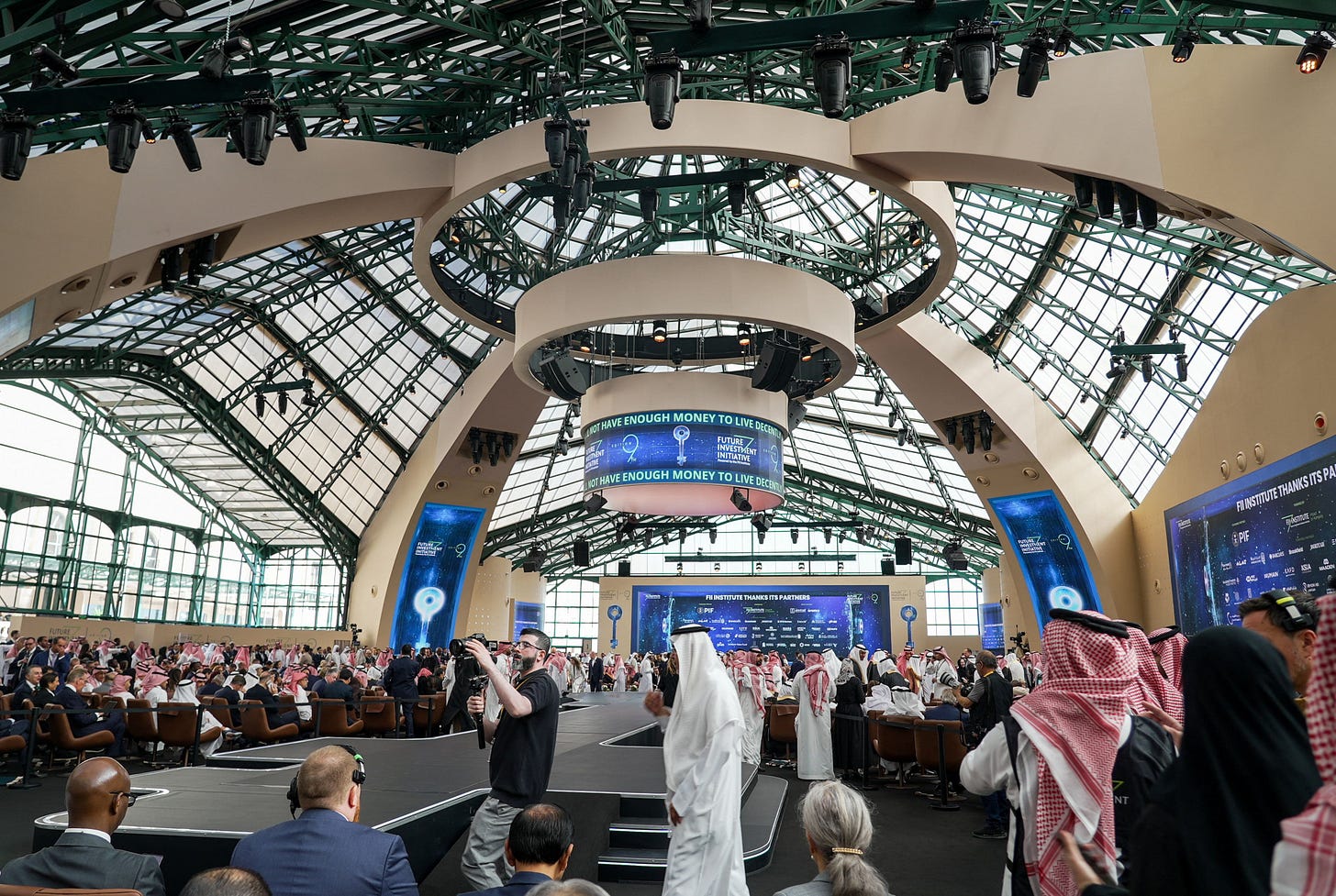Vision 2030 Falters: Saudi Diverts NEOM Funds to AI and Religious Tourism
According to Reuters, the $925 billion Public Investment Fund (PIF) is now prioritizing investments that promise near-term economic returns
Saudi Arabia, PUREWILAYAH.COM - Saudi Arabia’s ambitious NEOM megacity project — once touted as the centerpiece of Crown Prince Mohammed bin Salman’s Vision 2030 plan — is facing major setbacks, prompting the kingdom to redirect funding from real estate megaprojects toward artificial intelligence and religious tourism.
According to Reuters, the $925 billion Public Investment Fund (PIF) is now prioritizing investments that promise near-term economic returns, including AI, logistics, mining, and the expansion of religious tourism in Mecca and Medina.
NEOM Faces Delays and Scaling Back
Initially envisioned as a $500 billion futuristic linear city stretching across the desert and housing 9 million residents, NEOM has seen construction drastically reduced.
Current work is now limited to a 2.4-kilometer section, which includes a stadium reportedly planned for future World Cup use.
Officials are also said to be considering delaying Trojena’s 2029 Asian Winter Games — another Vision 2030 flagship project — to 2033, highlighting the ongoing struggles of the development agenda.
Shift Toward AI, Logistics, and Religious Tourism
At the Future Investment Initiative (FII) forum in Riyadh, artificial intelligence dominated the discussions, signaling a new direction for Saudi Arabia’s investment strategy.
Humain, a PIF-backed AI firm, announced plans to build 6 gigawatts of data center capacity powered by Saudi energy resources.
“Let’s just put it this way, everything we ask for, we get,” said Humain CEO Tareq Amin, emphasizing strong state backing.
In parallel, Saudi Arabia is investing heavily in religious tourism, including a newly announced expansion project at the Grand Mosque in Mecca, which will add nearly 900,000 new prayer spaces. The initiative is part of the kingdom’s effort to position pilgrimage as a long-term economic pillar.
Financial Pressure Mounts
The decision to shift priorities reflects rising pressure on PIF and its subsidiaries to produce faster financial results after years of high-cost, slow-moving megaprojects.
As part of the new approach, PIF is expected to cut its foreign investments — previously about 30% of its portfolio — down to 18–20%, redirecting more capital toward domestic ventures tied to AI, logistics, and religious infrastructure. (PW)



This shift in priortization is really telling. The fact that PIF is cutting foreign investments and scaling back NEOM to just a 2.4km section is a massive change from the original vision. I think the challange here is that megaprojects like NEOM require decades to show returns while AI and religious tourism can generate cash flow much faster. But what happens to all the green energy infrastructure projects that were part of NEOM, like the green hydrogen facilities? Those were supposed to be game changers for Saudi's energy diversification. Seems like the kingdom is focusing on quick wins over long term transformation, which makes sense from a financial presure standpoint but might hurt the broader Vision 2030 goals.